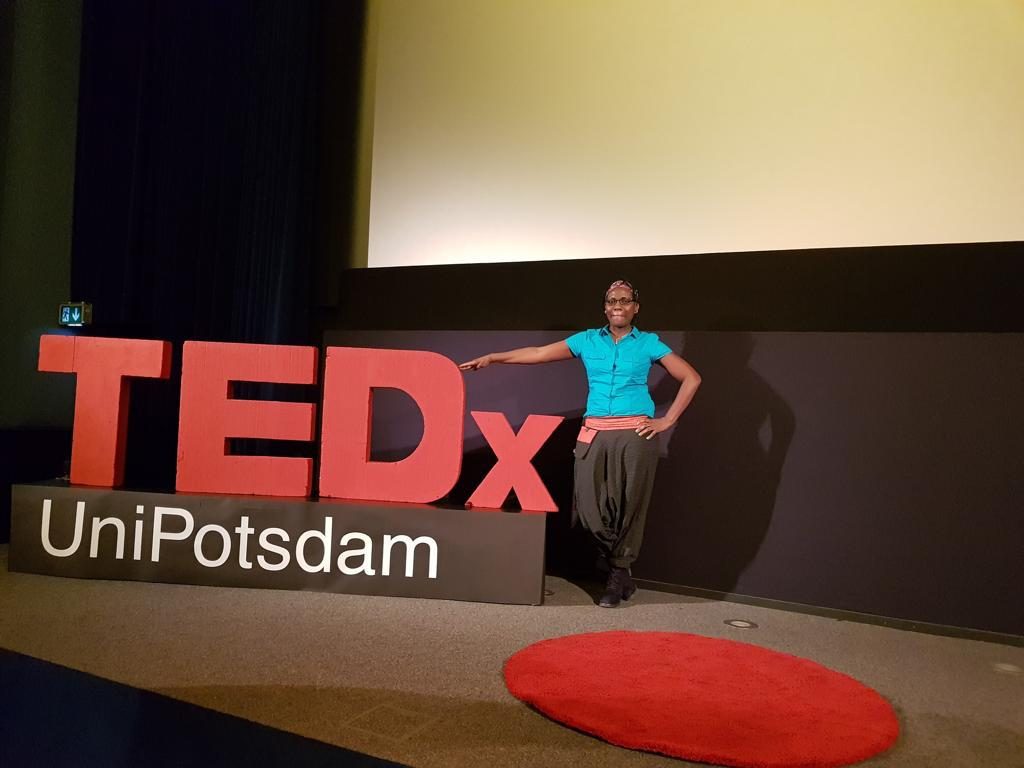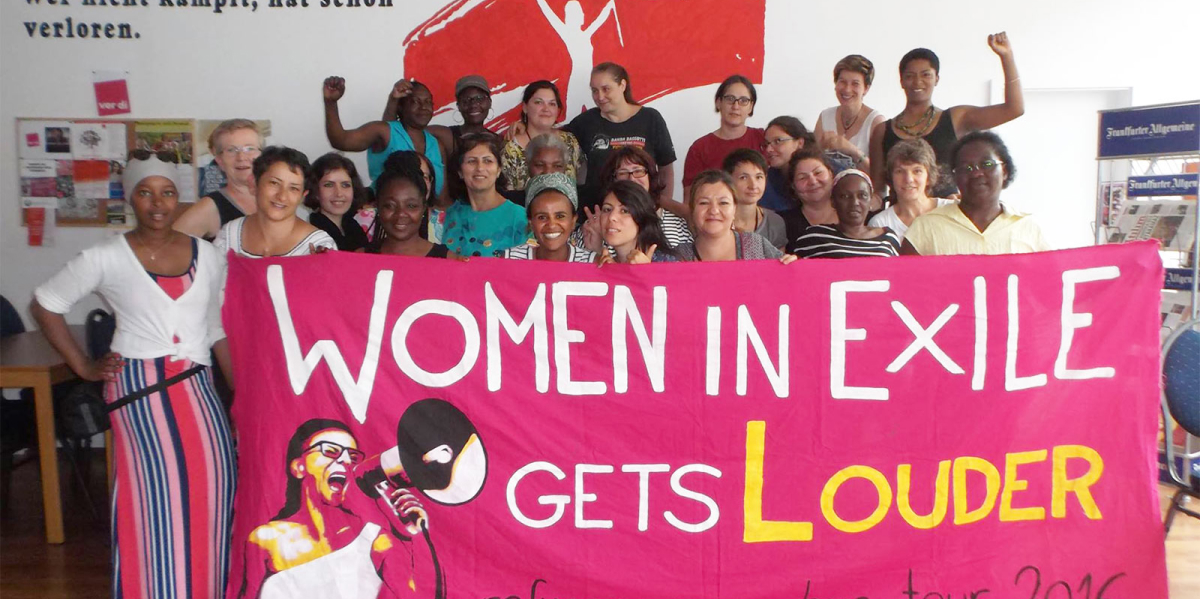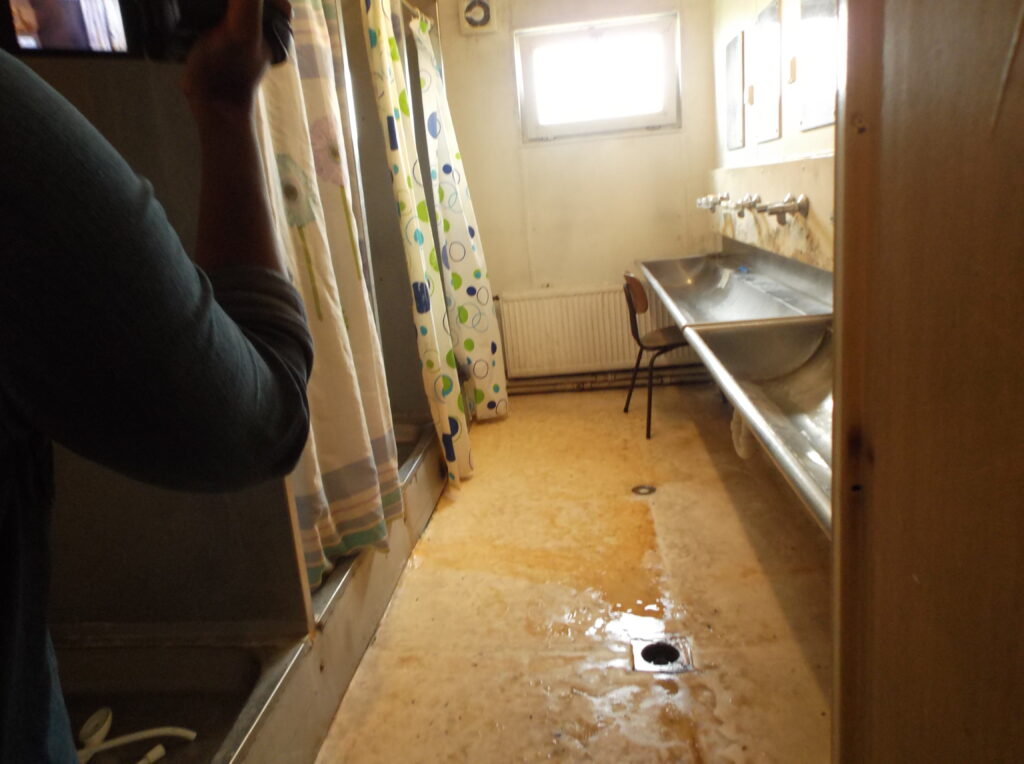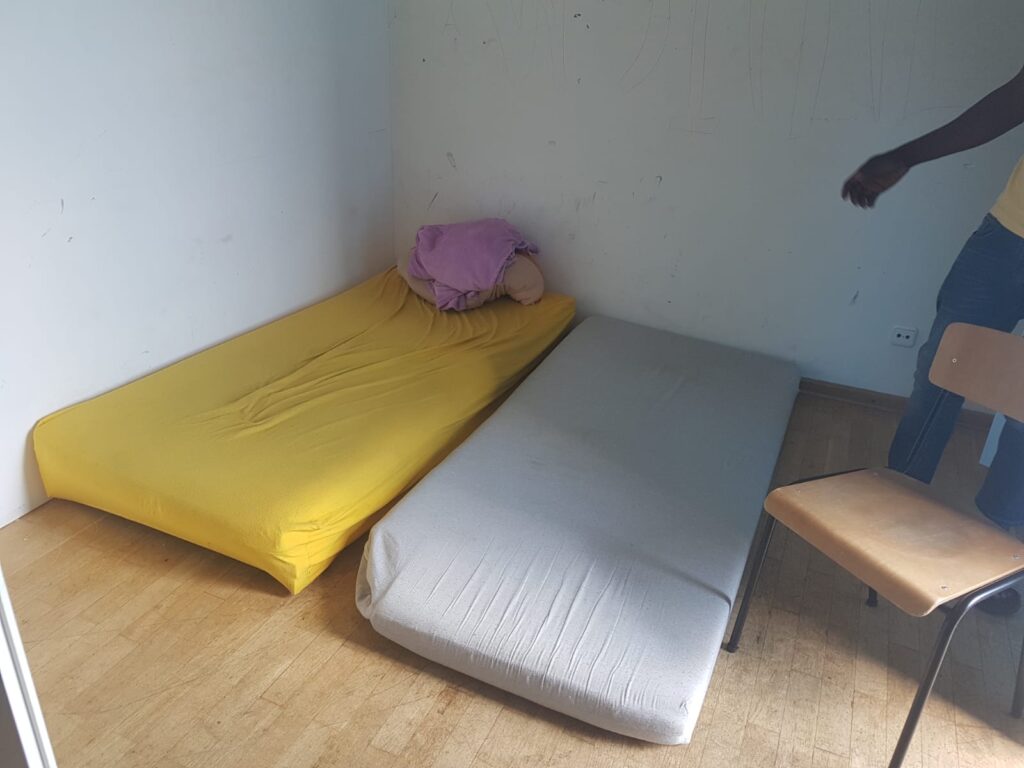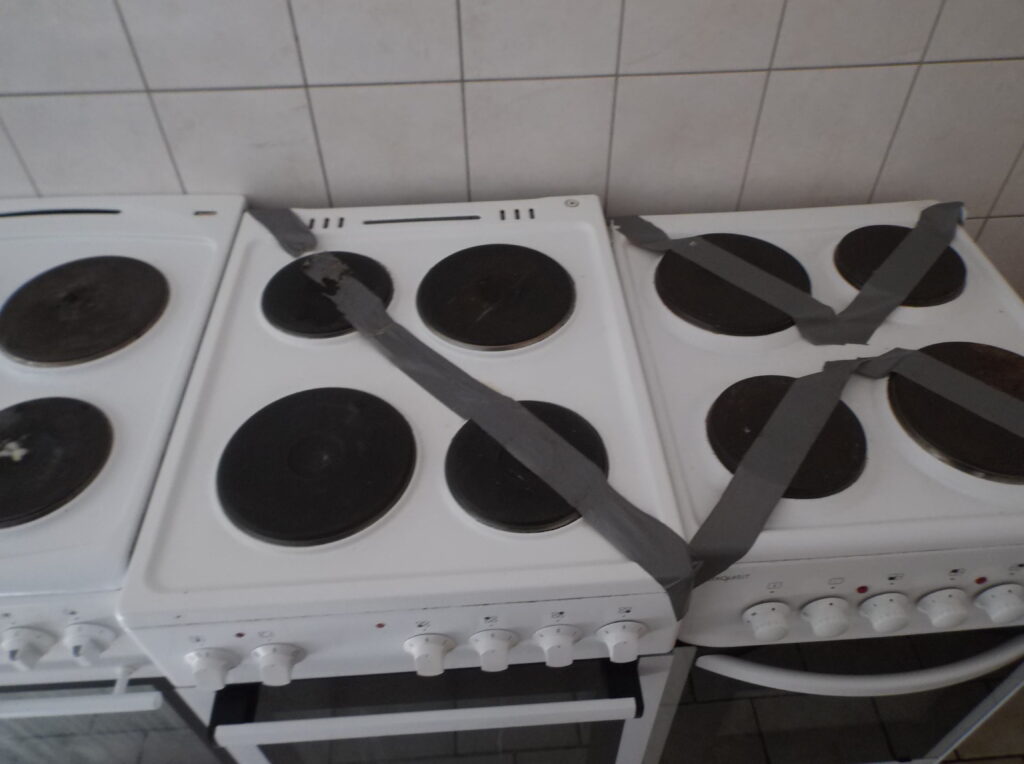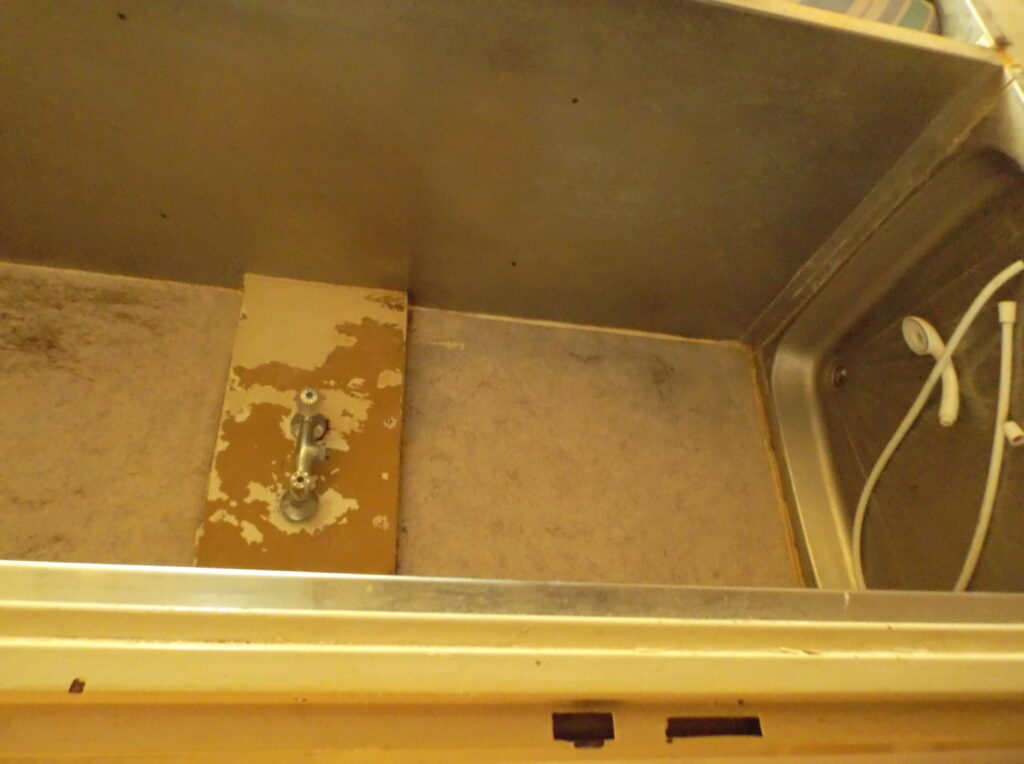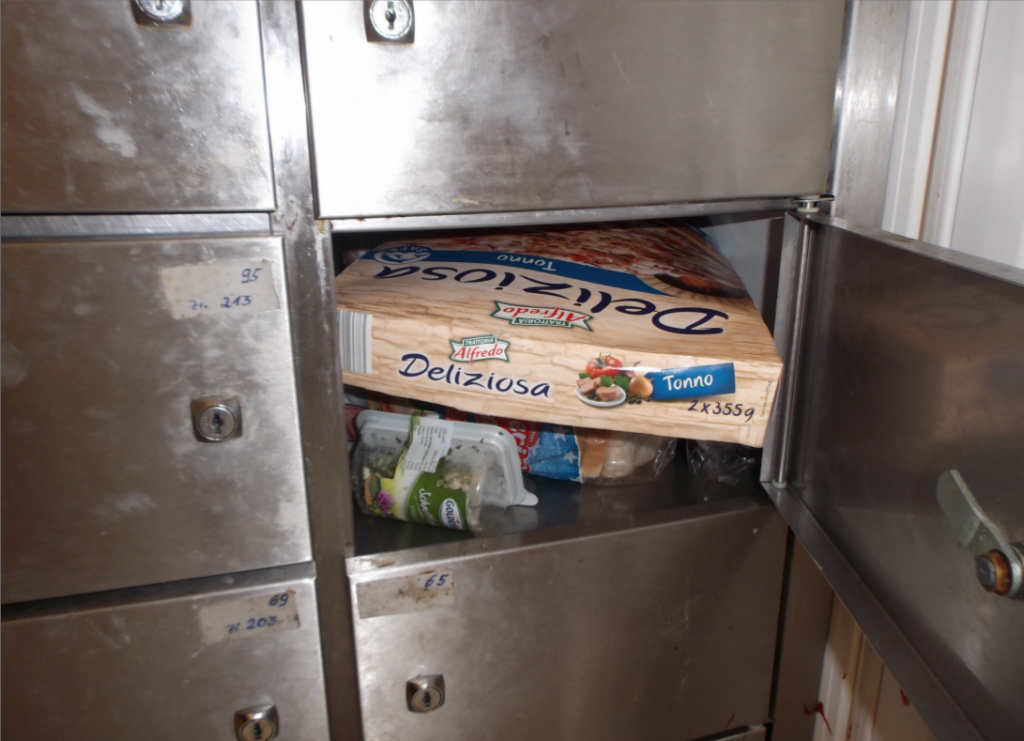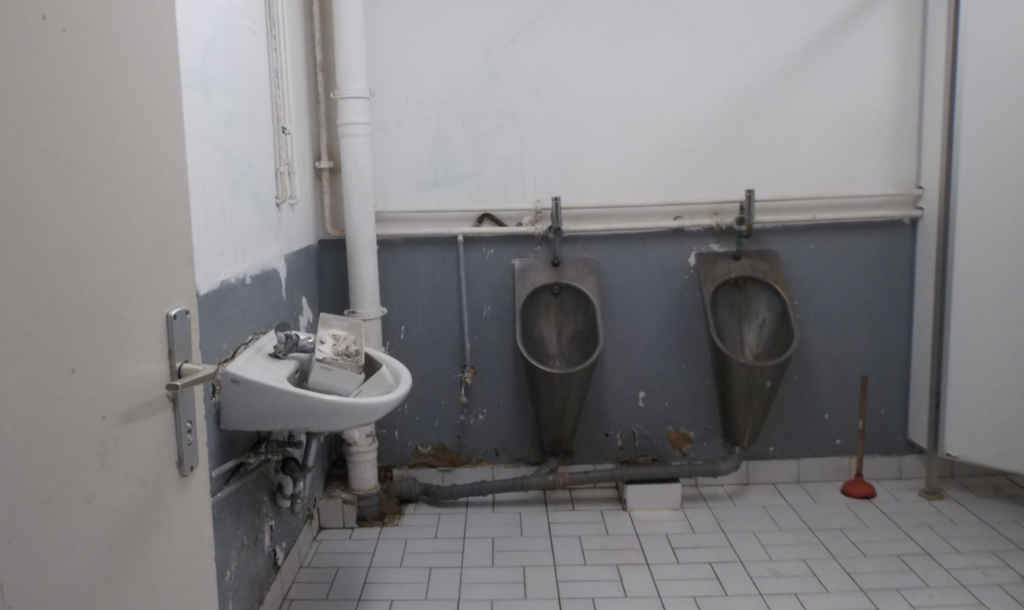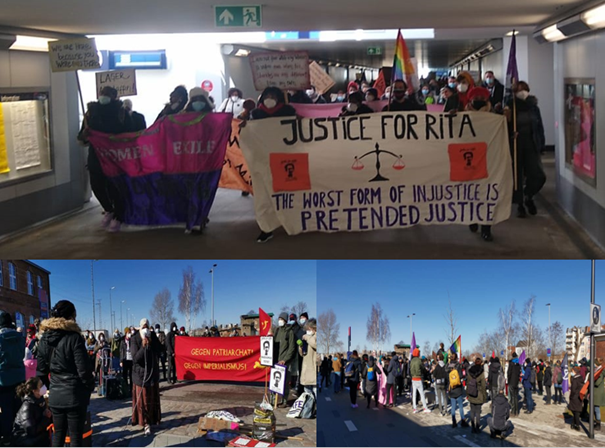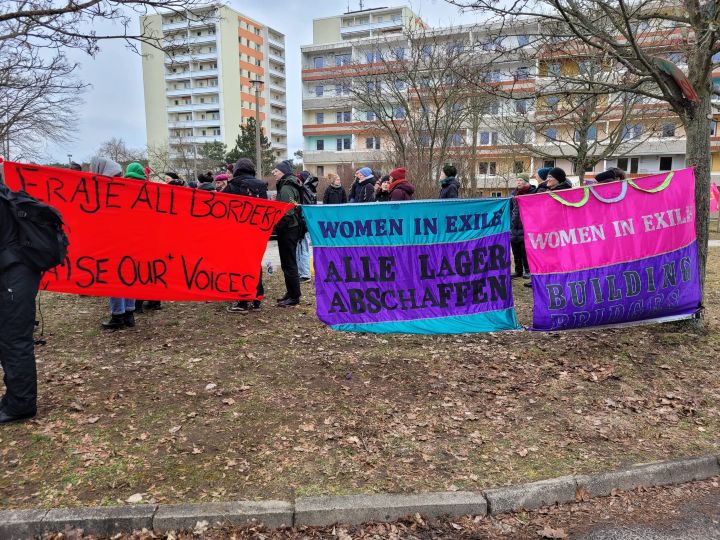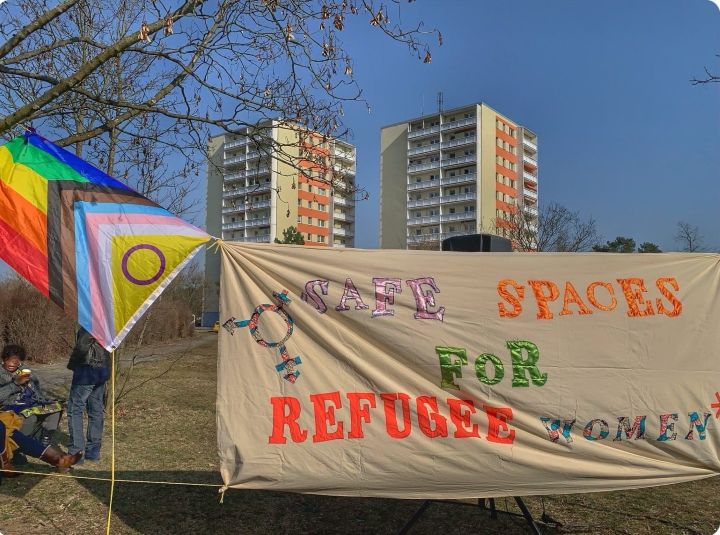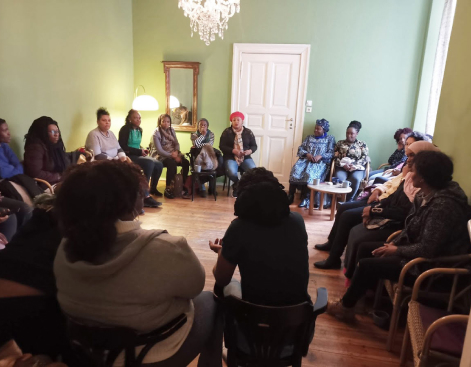On Monday 28th January 2019 we took part of the TED talk at the University of Potsdam with the theme Seeking discomfort, following you find the content of our talk.
There are human rights that we are all entitled to from birth until death. Would it surprise you to learn that many people are denied these rights? It surprised me.
Becoming a member and part of the volunteer staff of Women in Exile initiative, is a privilege that has allowed me to see, understand and be a witness to so many concerns surrounding human rights, especially the denial of those rights to women living in exile. Those whom we call refugees.
It is this uncomfortable truth that has made me seek the discomfort of standing in front of you, because I believe that this platform can bring awareness and awareness is the first step to creating the change needed to end the double discrimination against women refugees.
I would like to introduce you to some of the women refugees who I work with, but for many protecting their identity is vital to their safety.
Still I want to give you a picture of what the discrimination that many of the women face looks like on a daily basis:
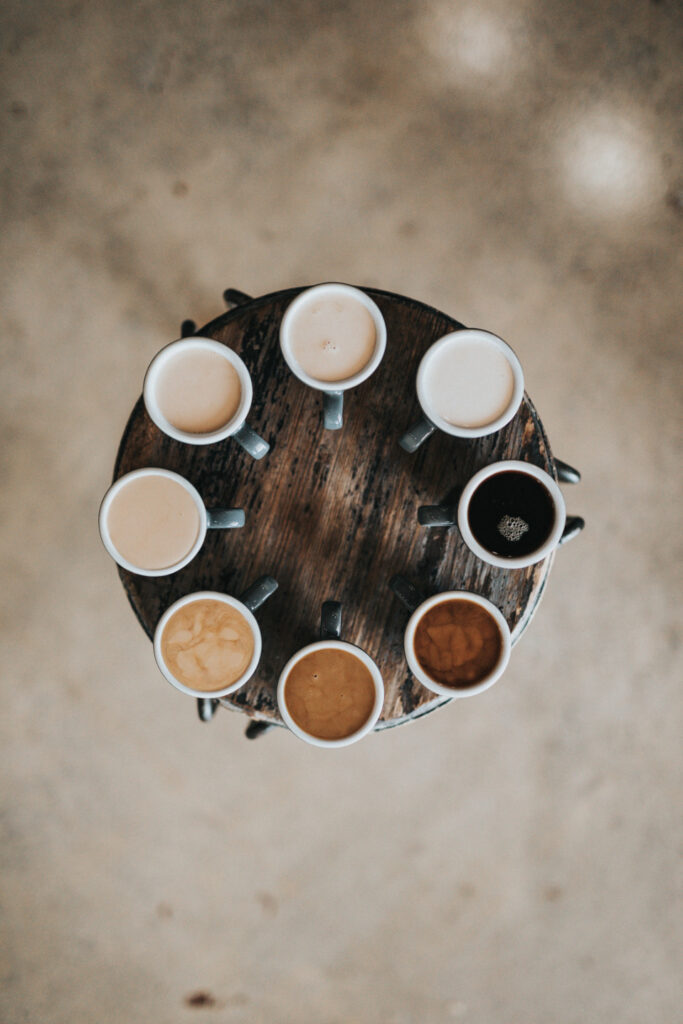
What do notice about these images? Yes, they are all coffee. In that regard, they are the same. The coffee is brought into this country from different countries around the world, so they are all imports. In this regard, again they are the same. Although they are all coffee, we can see that there are some differences. Let’s assume some have sugar, sweetener, milk or cream and some do not. If I asked you to decide which cups of coffee are good and which should be discarded, how would you decide? It would be a matter of preference wouldn’t it?
Preference is fine as a basis for deciding on which coffee you keep and which you discard, it is a terrible basis for deciding who gets basic human rights and who does not.
For many refugee women in Germany, decisions about their where, how and in the end, even if they are allowed to live, are decided based on preference. Sometimes it is based on the individual preference of a social worker or a refugee camp supervisor with racist beliefs. Sometimes it is a judge acting on laws that discriminate against the refugee from economized countries, and give preference to the one from “better countries”.
During the past two years, Ivy has lived in a single room with three other women. She has visited the refugee camp director 8 or 10 times asking to be moved to a room with a little more space. Each time her request is denied.
Hema who arrived from Syria at the same time, spent only two months in an overcrowded room. After she visited the same refugee camp director, she was moved to a room with only one roommate. Her request was approved almost immediately.
Ivy and Hema are both women, refugees and both in need of an appropriate space to live in. They are treated very differently, often the discrimination is based on skin color, but also religion and sexual orientation play a role in the unfair treatment. The line between discrimination, racism and sexism is most often blurred and overlapping
Sometimes the unfair and unequitable treatment stems from individuals or one part of the refugee process and sometimes it stems from the very core of our system itself, with biased and discriminatory laws.
Imagine fleeing from your country because it is one of the 73 countries in the world in which homosexuality is banned by law. You are a crime. Your life is threatened by your society and even by your family and relatives. A serious threat that could lead to a death sentence whether by court ruling or stoning in the streets, just because you are not accepted the way you are born. Eventually you manage to flee to Germany, a country whose parliament voted to legalize same-sex marriage in June 2017, a country where you know you’ll be safe. At the least you will be able to enjoy being free of fear and you can just be yourself.
Your relief is short-lived, when you are called in for the interview that all asylum-seekers must go through. You are surprised at some of the questions you are asked during your interview, but if this is the path to saving your life, you will answer any question. Imagine your pain when you hear that your asylum has been rejected and your shock when you learn why. Your asylum has been rejected, because you can’t prove that you are a lesbian. You wonder if the others, asylum seekers are also being questioned to prove if they are straight or not. After all, even though their case for fleeing might be different, you are seeking the same, a safe place to live, refuge.
We talk of welcoming integration and at the same time we practice discrimination by separating the good & the bad, the preferred and the undesirable refugees. The one to stay & the one to be forced away. The one who gets a chance at a new life and the one who is sent back to lose her life. Again, through these restricted asylum laws and policies, the refugees learn amongst themselves that some are better than the other.
The Act of Benefits for Asylum seekers was passed in 1993 with the aim of discouraging asylum seekers from coming to or staying in Germany. It’s discriminating because according to this Act, treatment is only paid for in the event of acute diseases or pain. For any further medical treatment, one needs to individually apply at the Social Services. This means that unqualified people make decisions concerning the health of the refugees.
Most refugee women’s health cases are treated by radical and drastic measures, such as surgeries, which has left the women lacking time or possibilities to decide on a treatment on their own.
A good example is of one refugee women who had an ongoing bleeding, and the doctor treating her, immediately suggested the complete removal of the uterus. Terrified she came to us where we referred her to an outside doctor. It turned out the surgery was completely unnecessary! Her story is not unique!
We need clear policies on how to protect refugee women especially from violence, especially sexual violence, sexual harassment and other physical violence. Clear policies that make women feel safe regardless of their status in this country.
)We need an end to policies and practices aimed at making life here as hard and emotionally draining for the women as possible, such as over-crowded rooming and humiliating conditions.
These women have no privacy in their accommodation homes, where any one whether it’s the social worker or security or inmate can enter their rooms at any single time of the hour of the day/night. This among other things, contributes to the risk of sexual assault and exploitation of the women and often their children. These are the same women and children, who are still traumatized from their country of origin, from their long, risky and the experiences during the very dangerous journey they had to undertake get here (Germany) only to arrive and still receive such ill- treatment.
These women’s voices need to be heard and their cries shouldn’t be turned into deaf ears.
I know what many of you are thinking: “Yes, these women must be heard and helped, but what can I do?”
I will share a quote from one refugee activist who like us, had heard this question many times: How can I help? She replied “how can we tell you what your solidarity looks like? You know your resources, your abilities and your power. So, think about that and see how you can join in solidarity.”
Let us all, with open minds, see how we can be in solidarity with the thousands of women refugees in this country. Let us reflect on our own prejudices & privileges and look into our environment, change it. Let us break the isolation and listen to their stories. Let us donate what we can because solidarity needs time, energy and money.
We can dismantle discrimination, racism & sexism when we look at the uncomfortable truth, when we decide use our resources, abilities and power to make a change, and when we unite in the discomfort of taking action to uphold the human rights to which a refugee woman is entitled, the same as you and I!
